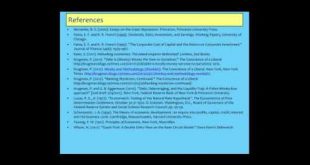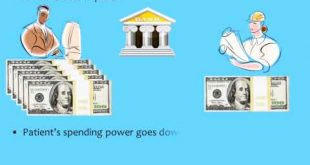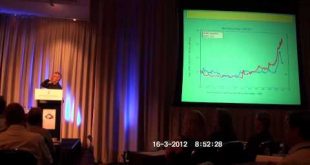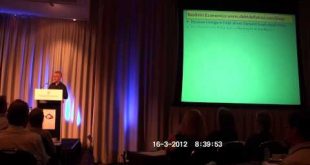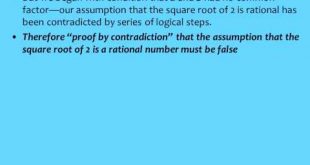Read More »
Just Banking Presentation Edinburgh 2012
There are two myths in banking: that bank debt can't be repaid, and that banks don't have any significant impact on macroeconomics. The former is held by many in the public, the latter is believed by the the dominant deluded school of economics, Neoclassicism--as Paul Krugman confirmed recently in his blog brawl with me. This presentation debunks both myths, using logic, dynamic modelling, and empirical data. A warning: I was given only 20 minutes for this presentation so I went even faster...
Read More » Steve Keen’s Debt Watch
Steve Keen’s Debt Watch

